William Ford | 17 NOV 2025
On November 22, 2025, Canadian pianist Jan Lisiecki will appear at Spivey Hall in Morrow, Georgia, performing a program centered on Chopin’s 24 Preludes, Op. 28. In conversation with William Ford, Lisiecki reflects on the discipline behind his poise, the psychology of performance, and the architectural precision that shapes his musical decisions.
William E. Ford: You’re in Poland now?
Jan Lisiecki: Yes, it’s my European base. I just returned from concerts on Sunday and am heading out again soon—the usual life on the road.
WEF: Do you still have family there?
JL: From my father’s side—my grandmother and his brother live in Poznań. About eight years ago, I was given a piano and needed a place for it, since I already had one in Canada. I have a studio here where I can practice; it’s a bit of a home base.
WEF: Your parents weren’t musicians, right?
JL: No. They’re horticulturalists, but they listened to a lot of music—jazz, Pink Floyd, Enigma, and a little Chopin. So music was always around me, though not classical in focus.
WEF: How did classmates react to having a prodigy in their midst?
JL: Most didn’t know. I skipped junior high, so I was younger than everyone else, but I never talked about performing. They probably thought I was sick when I was gone. By semester’s end, word might spread and I’d play something for the class—but that was it.
WEF: Do you listen to much music yourself?
JL: Not a lot. I find it hard to have classical music as background—it draws my full attention. When I’m home there’s sometimes other music on, but when I’m out, I prefer silence and awareness of where I am.
WEF: When you do listen, what’s on your list?
JL: Full albums—Pink Floyd, Jan Garbarek, Pat Metheny. Occasionally The Weeknd or Taylor Swift. I’m open to most genres except very heavy metal or aggressive rap.
WEF: Do you analyze pop music the way you might a sonata?
JL: No, and that’s why I enjoy it. It lets me listen without dissecting every phrase. Occasionally something technical catches my ear, but mostly it’s just pleasure.
WEF: You hold dual citizenship. Do you feel more Polish or Canadian?
JL: I’m Canadian through and through, but my roots are Polish. I speak the language, have family here, and understand the culture. Still, being raised in Canada shaped me in ways that would’ve been impossible in Poland.
WEF: How did you start playing the piano?
JL: I don’t remember the first time I touched one. It wasn’t instant love. I had many interests—skiing, swimming, math. Music was just one of them until concerts started happening around age ten. Then it became something I could work toward, and that built my passion.
WEF: Do you have pre-performance rituals?
JL: The only constant one is saying a short prayer before going onstage. It helps me focus and set intentions. Otherwise, I just try to rest and eat properly.
WEF: Do nerves still play a role?
JL: Always. Sometimes they sharpen focus; sometimes they’re a hindrance. Mood and perception of importance matter as much as preparation. You learn to manage both.
WEF: Ever walk offstage thinking, “That wasn’t good”?
JL: Not an entire concert, but parts—sure. Live music involves risk, and risk sometimes fails. But without it, performance becomes static.
WEF: How involved are your parents today?
JL: Very. They’ve supported every step, and though they’re not musicians, we’ve learned the business together. I still discuss major decisions with them.
WEF: Speaking of business, how much of it do you handle personally?
JL: Quite a lot. I’m self-employed. I discuss contracts with management, but I book my own travel and do my own taxes. It keeps me connected to reality.
WEF: Do you read your reviews?
JL: Of course. Anyone who says they don’t probably still does. I don’t seek them out, but if they come my way, I read them all. What bothers me are reviews that make assumptions—about my life, my preparation, or motives. Opinion is fine; presumption isn’t.
WEF: You’re performing soon at Spivey Hall near Atlanta. Have you been there before?
JL: No, this will be my first time. It fit perfectly into my recital routing. I’m glad it worked out, and I’m looking forward to performing in the Atlanta area.
WEF: Why a program entirely of preludes?
JL: Programming matters as much as playing. The Chopin Op. 28 Preludes form the core—24 short pieces that create a full cycle. Around that, I’ve built other preludes—Bach, Rachmaninoff, Messiaen, Górecki, Szymanowski—to show how different composers approached the form. Each connects naturally to the next, so it feels like a continuous journey rather than a set of fragments.
WEF: Are there contemporary composers you’d like to play more?
JL: Yes, but for now I’m consolidating core repertoire. I know about 30 concertos, but there are still major works I want to learn. Once I’ve done that, I’ll dive deeper into 20th- and 21st-century music.
WEF: Do you have piano heroes?
JL: I grew up with recordings of Argerich, Perahia, Gould, Zimerman, and Rubinstein. I respect many colleagues, but I try to cultivate an individual voice rather than mirror anyone else.
WEF: You’re also remarkably thoughtful. Thank you for your time.
JL: Thank you. I enjoy interviews that make me reflect on things I don’t normally stop to consider. ■
Jan Lisiecki’s recital at Spivey Hall this Saturday, November 22 at 3:00pm, offers Atlanta audiences a rare opportunity to experience one of the most intellectually refined pianists of his generation. This interview was conducted by William E. Ford for Atlanta Music Critic and appears here in collaboration with EarRelevant.
Watch the full interview on YouTube:
EXTERNAL LINKS:
- Jan Lisiecki: janlisiecki.com
- Spivey Hall: spiveyhall.org

Read more by William Ford.

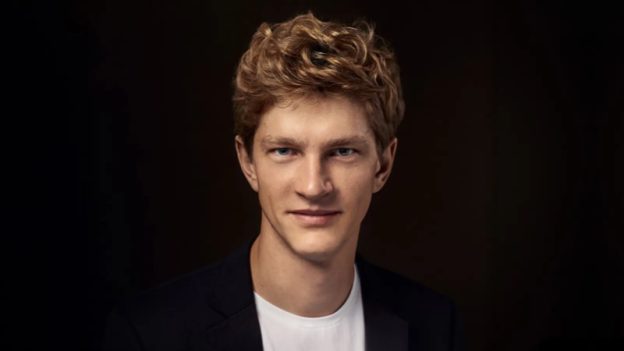
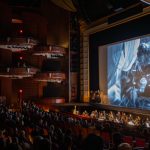
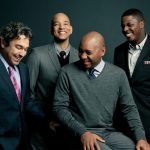
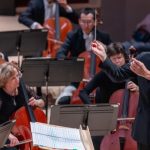
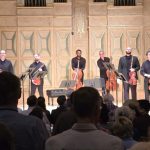
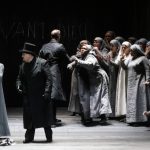
.png)